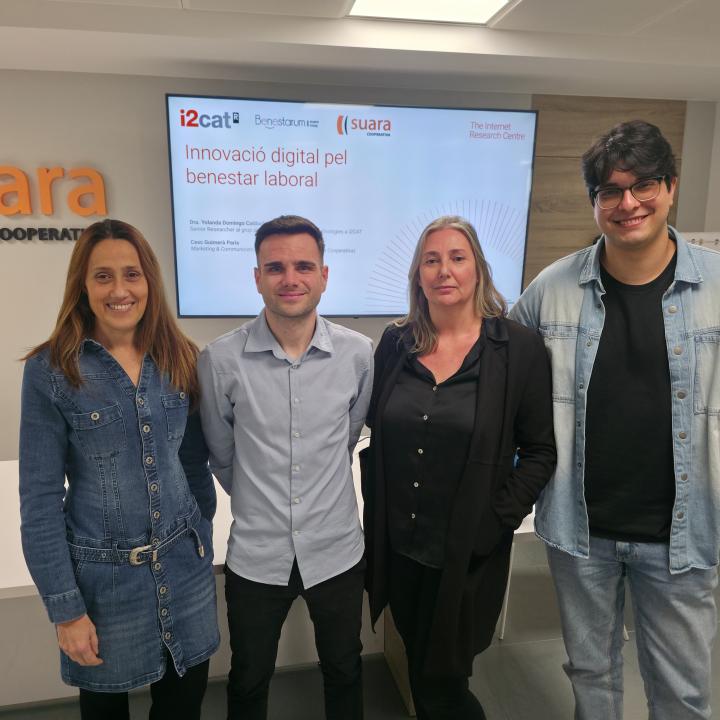We celebrate World Virtual Reality Day. A gateway to the digital future that revolutionizes the present by being a tool for social inclusion and community innovation.
On World Virtual Reality Day (VR), which is celebrated this November 19, several third sector entities are focusing on the inclusive and transformative power of this technology in the most vulnerable communities.
Virtual and immersive reality, traditionally associated with entertainment and commercial innovation, is demonstrating its potential to promote social inclusion, education and integration in areas such as support for people with functional diversity, mental health and the training of young people at risk of social exclusion. This has ceased to be a futuristic and inaccessible concept to become a fundamental tool that transforms the way we interact with the world.
For more and more third sector entities, virtual and immersive reality represents a tool to make experiences accessible to groups that are often left out of technological opportunities. Suara Cooperativa, for example, uses virtual reality to offer immersive and cultural trips to elderly people with reduced mobility, which allows them to “transport themselves” virtually to museums, natural landscapes and historical sites. This type of experience allows them to relive historical moments from their youth or access spaces and experiences that due to their physical situation they could never visit again.
A good example of how we use virtual reality at Suara Cooperativa is with the REVIVE project, which we are developing together with the technology company Broomx and the Consorci Sanitari de Terrassa. This program, which was created thanks to a grant from the Singulars project of the Department of Business and Employment, allows us to work in group sessions on the cognitive and physical well-being of older people while helping to combat unwanted loneliness and bring this technology closer to a group that would not normally have access to it. Therefore, beyond improving the mental and physical health of people, it also allows us to break social and technological gaps.
Therefore, virtual reality makes it easier to combat unwanted loneliness and the feeling of isolation for those people who have few social interactions in their daily lives, making accessible experiences that bring them closer to the outside world.
At Suara Cooperativa, we have begun to implement virtual reality in mental health support programs, using virtual environments for exposure therapy (gradual and accompanied exposure to the traumatic situation) and emotional management. In these programs, virtual spaces are created where the people being treated (adolescents and young people) can practice social skills and face fears in safe and controlled environments. These practices become a therapeutic tool that complements psychotherapy.
Beyond this, it also allows us to work on the well-being of working people with programs such as Immersive Mindfulness, which helps improve stress or anxiety sessions.
In order to develop programs like these, it is essential that social entities establish alliances with research centers and universities, nurturing each other and building value propositions.
On this World Virtual Reality Day, the third sector also calls for inclusion and technological accessibility. Despite the great advances, access to virtual reality is still limited by many entities that work with limited economic resources. The challenge for the future is to ensure that both the public and private sectors facilitate access to this technology.
For the third sector, virtual reality is a tool with the potential to promote social inclusion, offer support for mental health, and open up new opportunities for the future and democratizing technology. Specifically virtual reality, becomes another imperative to guarantee the same rights and opportunities for everyone and thus achieve technological sovereignty from accessibility and affordability.
Natalia Alonso
Specialist in Suara Cooperativa Immersive Reality



